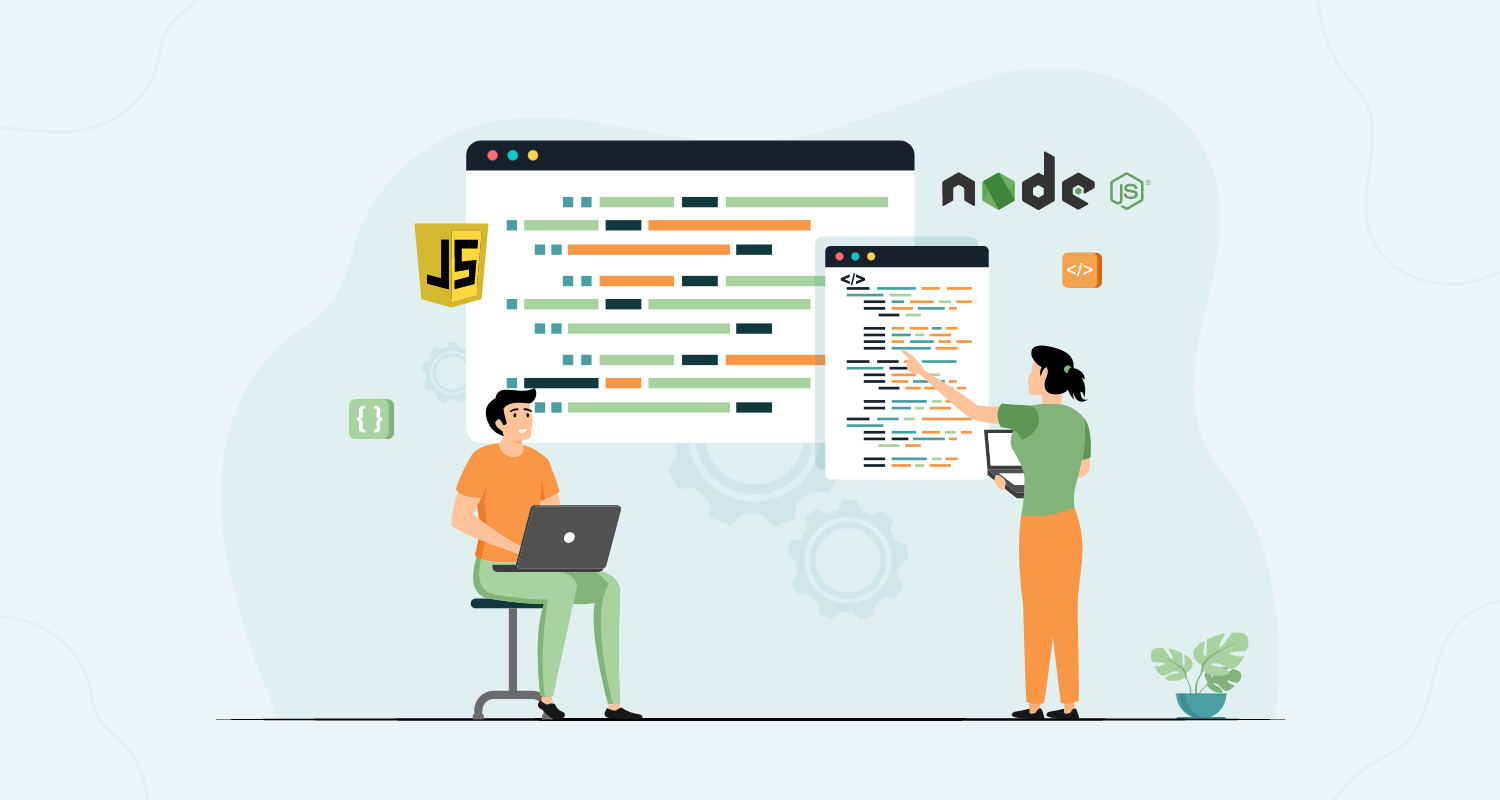Developers all over the world increasingly focus on skills and technology stack that can take care of a variety of development tasks and challenges. This is why programming languages like NodeJS and Go have been so popular in recent times. Both NodeJS and Go can handle both frontend and backend development tasks.
No wonder, there is a lot of competition between these two programming technologies in the market. While NodeJS as the leading backend development technology powers countless successful apps in the market, Google’s Go has emerged as one of the leading programming languages with a great competitive value proposition.
Here we are going to explain both of these languages and compare their key strengths and weaknesses.
What is Node js?

NodeJS appeared for the first time way back in 2009 as a feature-rich and highly scalable JavaScript framework that can run on a variety of IS platforms on Linux, Mac, and Windows. Developed on the V8 JavaScript engine and comes loaded with a rich repository of libraries, NodeJS came as a great framework to simplify building dynamic web apps.
Over this decade the framework also went through a great evolution. The framework that earlier could only execute JavaScript code now can create code capable to run for both front-end and backend applications. For any NodeJS development company the preference for the language can primarily be traced to exceptional performance and app output.
What is Go Language?
Go or Golang is a programming language developed and maintained by Google. Google developed the language for fulfilling specific development needs that are common with too many innovations in the world of Information Technology. Google developers created Go precisely for achieving better performance with their apps.
Go language is an open-source programming language with its core structure developed following the safety principles of C language and performance-focused principles of Python. Some of the key aspects that made Go a great choice for the backend developers include a limited collection of garbage, structural coding, features to safeguard memory, etc.
Nodejs Vs. Go: The Complete Comparison in 2023
Now that the key features and attributes of both NodeJS and Go are explained, let us now provide a detailed comparison between these two technologies. Let us compare the two languages in regard to key parameters.
Nodejs Vs. Go: Speed and Performance
Performance directly impacts the loading speed of an app and hence it is important for any app project.
Go
According to most Go developers, the language delivers an equal performance as C and C++ which is great as per the established performance standard. Without a virtual machine it allows directly compiling with machine code and this allows faster execution of the programs by saving the wrap-up time.
Apart from that, Go comes with a built-in garbage collector that can keep track of memory usage and can create a lot of space re-utilization of memory. The smaller memory footprint makes Go an ideal language for apps with microservices.
Node.js
Node.js inheriting the core positive attributes such as asynchronous and non-blocking nature can help to perform a variety of tasks in the background without affecting the principal application thread. Moreover, the V8 engine used by NodeJS is regarded to be the fastest JavaScript engine as of now.
Node.js also allows reusing the code which comes as a great performance boost for the event-based applications that need to update data instantly or in real-time. No wonder, NodeJS offers a performance-boosting solution for apps like online game apps, instant messaging and chat apps, video chat apps, etc. There is no wonder, in fact, leading apps around the world including PayPal and Netflix now switched to NodeJS.
As the last judgment, both the languages offer equally great performance. While NodeJS is a lot feature-rich, Go provides improved raw performance because of its simplicity.
Nodejs Vs. Go: Concurrency
For apps are expected to execute workflows through a single program and this is called concurrency. Concurrency also helps boost the efficiency of the CPU and improve app performance.
Go
Go fits into large software development projects because of its strong capability to accommodate concurrency. Thanks to channels and goroutines Go offers great concurrency. Developers can utilize a multitude of goroutines using maximum random memory.
NodeJS
Just because Node.js is single-threaded technology, it lacks concurrency. While using NodeJS the tasks carried out by the CPU can actually block the event loop and this may result in slower performance.
Developers Community
Having a robust developer community is important for any language to enjoy continuous support and value additions.
Go
As an open-source language, it always attracts value additions and improvements from developers all around the globe. Moreover, by having Google support it is likely to enjoy continuous and unperturbed support. Go also has a repository in GitHub that frequently attracts the developer’s engagement.
NodeJS
Node.js is also an open-source technology with a robust repository on GitHub. As a language that has existed for a decade, it also boasts of a large developer community that continuously comes with value additions, bug fixes and new proposals from time to time. The best thing is NodeJS foundation has the experts of leading technology companies such as Intel, IBM, Microsoft, NodeSource, GoDaddy, PayPal, etc.
Nodejs Vs. Go: Out of the Box Tools
Inbuilt or ready to use tools adds further values to a programming language. The out of the box tools help fast-paced development and cutting development costs to a great extent.
Go
Go has a very small number of tools just because it’s straightforward approach just suits the full-fledged library it comes with. It has all the features that don’t require support from third-party tools.
NodeJS
NodeJS offers a vast array of tools and frameworks. Moreover with a microservices architecture is likely to accommodate different tools and libraries as finding suitable for the project. Node.js package manager or Npm provides as many as 800,000 ready to use components or tools for different development uses.
Read More: NodeJS Development Trends
Nodejs Vs. Go: Debugging and Handling Errors
A programming language must offer comprehensive debugging and error handling techniques to make the development easier and ensure better qualitative output.
Go
Go by separately handling the errors in the run-time and compilation-time, makes the job tougher for the developers. But Go developers are already working on this.
NodeJS
Node.js instantly addresses the errors as and when they occur and makes the job of developers easier.
Conclusion
Finally, both are great languages with a variety of positive attributes. The choice entirely depends upon your project, corresponding complexities, and the developer strength.










